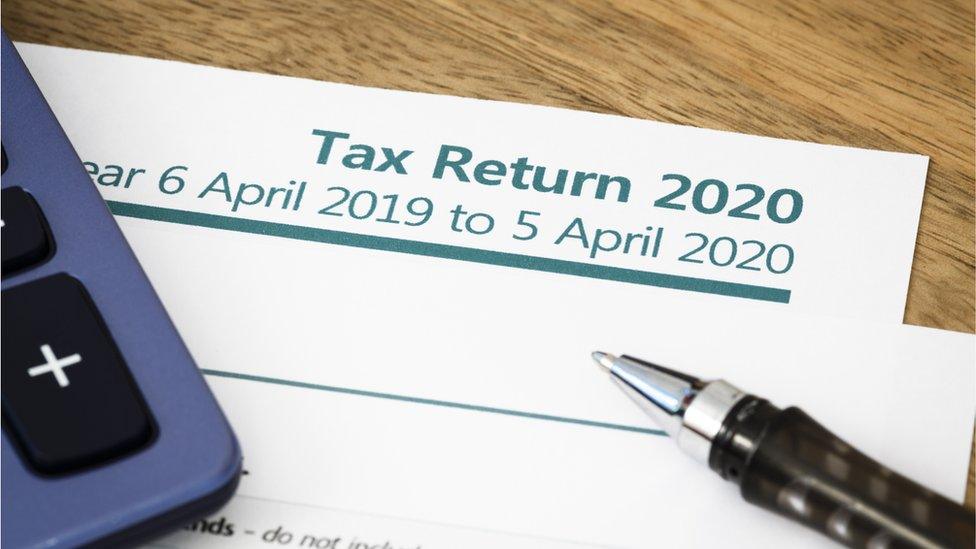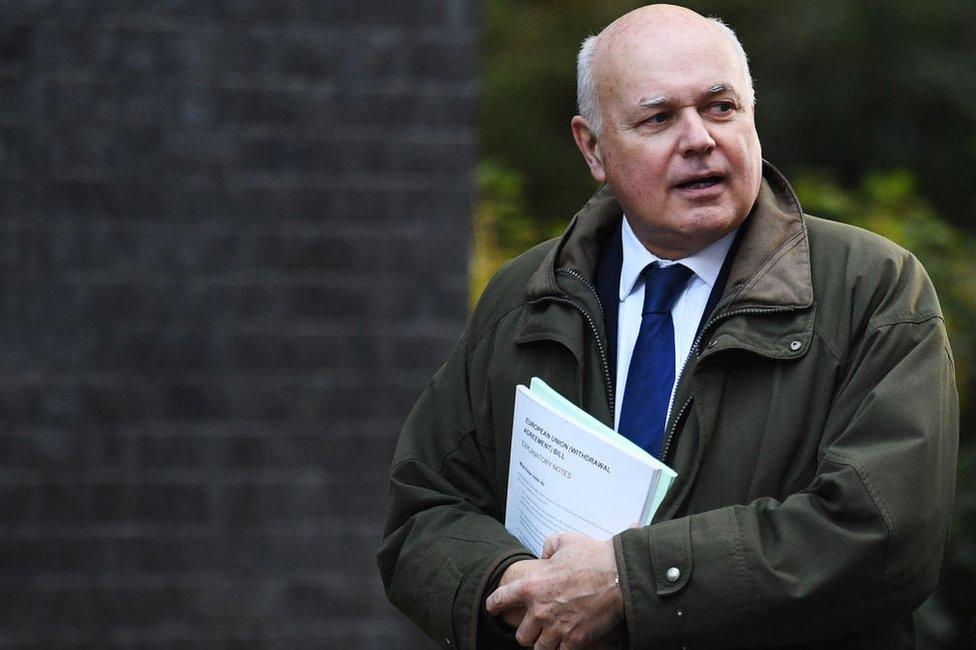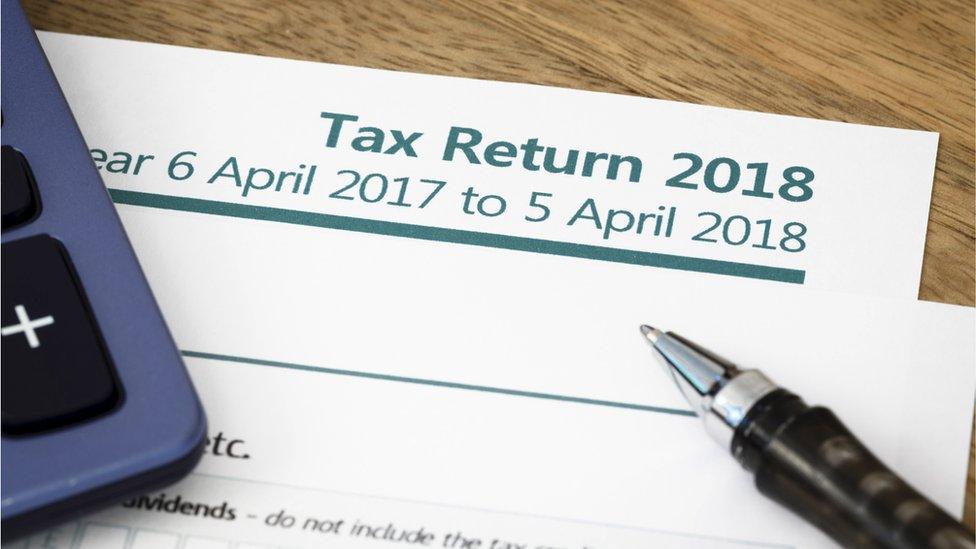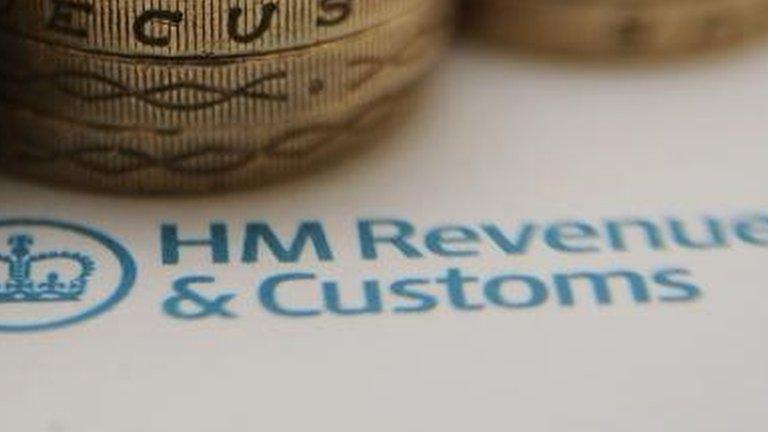‘I owe £180,000 in tax and I haven’t told my wife’
- Published

"It's a massive amount of pressure. I've sort of kept it to myself. My family don't know about this and I've often thought: 'Is that the right decision?' But I wouldn't want to put them through all this."
John is not his real name but he didn't want to be identified. After all, he has spent more than two years keeping his financial worries hidden from his wife.
He is one of an estimated 50,000 people who have been hit by a controversial tax policy known as the loan charge. As a result, he now owes £180,000 to HMRC.
The pressure of the last two years has been enormous. He told BBC Radio 4's File on 4: "It's really tough. I can't tell you the last time I slept and it's difficult. It's just relentless, with no real end in sight."
This substantial tax bill stems from how John was paid when he worked as a contractor for a number of years.
He used a company to manage his admin and also his tax affairs. It promised him he could take home 85% of his earnings and still be compliant with UK tax law.
A number of different companies offered these tax schemes. Workers would be paid a small amount of salary as a standard, taxable income. Then they would receive a larger payment as a loan via an offshore trust.
Only a very small amount of tax was paid on these loans and there was no expectation they would be repaid. The government has closed this loophole and used the loan charge to demand large sums in backdated taxes from the freelancers and contractors who used them.
The policy effectively adds up third-party loans paid since 2010 and taxes them as income. This has meant substantial bills for many workers.

"There's a lot of people who just think I was a tax dodger and that's not the case," says John.
"It was more about the ease. If someone had said to me: 'You can take 90% [of earnings] but it's illegal,' would I have done it? Absolutely not.
"I've regretted it for the last two and a half years but I did nothing illegal and we've been made out to be criminals and we're not. We're just normal people earning a living."
A government spokesperson said: "The loan charge was introduced to ensure those who used disguised remuneration schemes to pay themselves income through loans, often via offshore trusts, contributed their fair share of tax.
"It is right that we continue to tackle these type of schemes."
Now John is now considering bankruptcy and says that will be the moment he tells his wife.
"I guess at that point I've got a plan, I've got a way out, even though it'd be difficult. It's a bitter-sweet one, really. If I get the closure I need, it'll be a relief.
"It'll be a relief because I don't know how much longer I can keep doing what I'm doing and, you know, keep the fight up, I guess."

A number of MP Sir Iain Duncan Smith's constituents have been affected
But while he's dealing with the ramifications of his tax bill he's angry that similar action isn't being taken against the firm that signed him up to the scheme.
"The only person getting hit with this is me, there's no liability whatsoever with these promoters. Everybody knows who they are, but it's the small people who are getting destroyed."
'Please steer clear'
"I think the government and HMRC go after the wrong target, because it's the easy target to go after," says MP Sir Iain Duncan Smith, who has a number of constituents who have been affected by the charge.
"But they're not really going after the promoters."
Mary Aiston, director of the counter avoidance directorate at HMRC, says that it has become harder for tax avoidance promoters to operate and around 20 have left the sector. Meanwhile, the government recently consulted on new laws to strengthen HMRC's ability to tackle promoters sooner, before taxpayers owe such huge sums in backdated tax.
In the meantime, taxpayers should make sure they understand any tax or payroll systems they are signed up to.
"The main message is, if it sounds too good to be true, it almost certainly is," Ms Aiston says.
"Somebody telling you that part of your income can come as a loan and that you keep it forever but you won't have to pay any tax or pay any tax on it. That is too good to be true."
One additional frustration for John is that loan-based and other potentially risky tax avoidance schemes are still being marketed, meaning growing numbers of people are potentially at risk of a large tax bill in the future.
"It makes me so angry you know. They're out there, you can Google, it's so simple to find where these people are. I'd tell anybody, just please, please, please stay clear. It's just not worth it."
File on 4: Taxing Situations will be broadcast on BBC Radio 4 on 20 October at 20:00 BST or listen again on BBC Sounds
- Published4 December 2018

- Published23 August 2018
